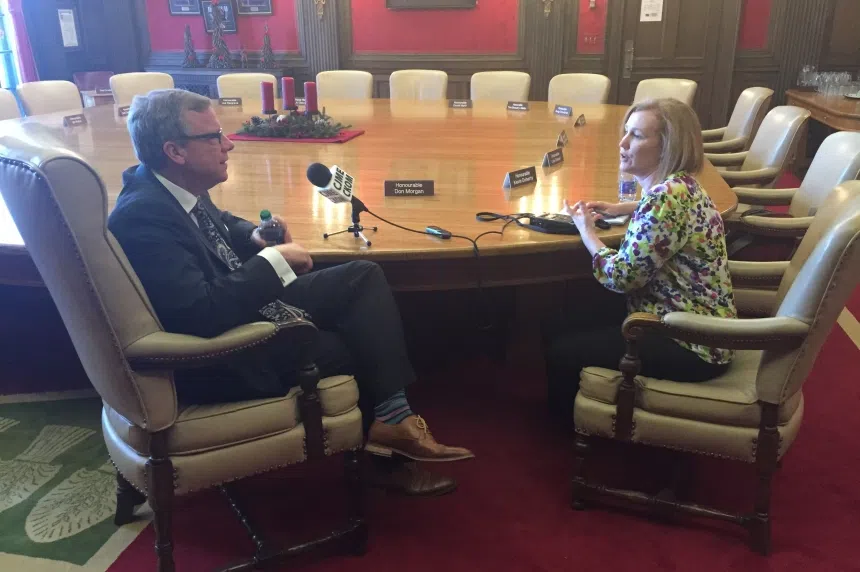
Election, oil spill, GTH: Premier Brad Wall looks back on 2016
Premier Brad Wall sat down with 980 CJME senior reporter Sarah Mills for an annual year-end interview. In this look back on 2016, he discussed the highs and lows of the year.
SASK. PARTY DOMINATES ELECTION
The Sask. Party made quick work of picking up a majority of seats in the legislature on election night April 4.
Reflecting on his third-consecutive majority win, Wall said he was humbled by the outcome – but added the moment brought with it the somber reality of leading a province in transition.


